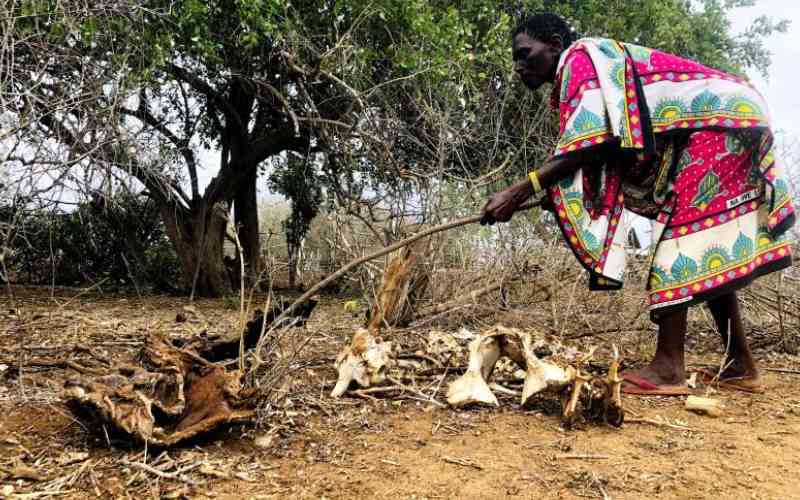×
The Standard e-Paper
Informed Minds Prefer The Standard

For Kadzo Kenga from Bungale village in Magarini, Kilifi County, 2022 is a year she would wish to forget. It is the year the 67-year-old lost all she had. Her 31 head of cattle were her main source of livelihood, and she lost all of them to drought.
Behind her makuti thatched hut, her cattle shed is now littered with skeletons of the livestock she once cherished.